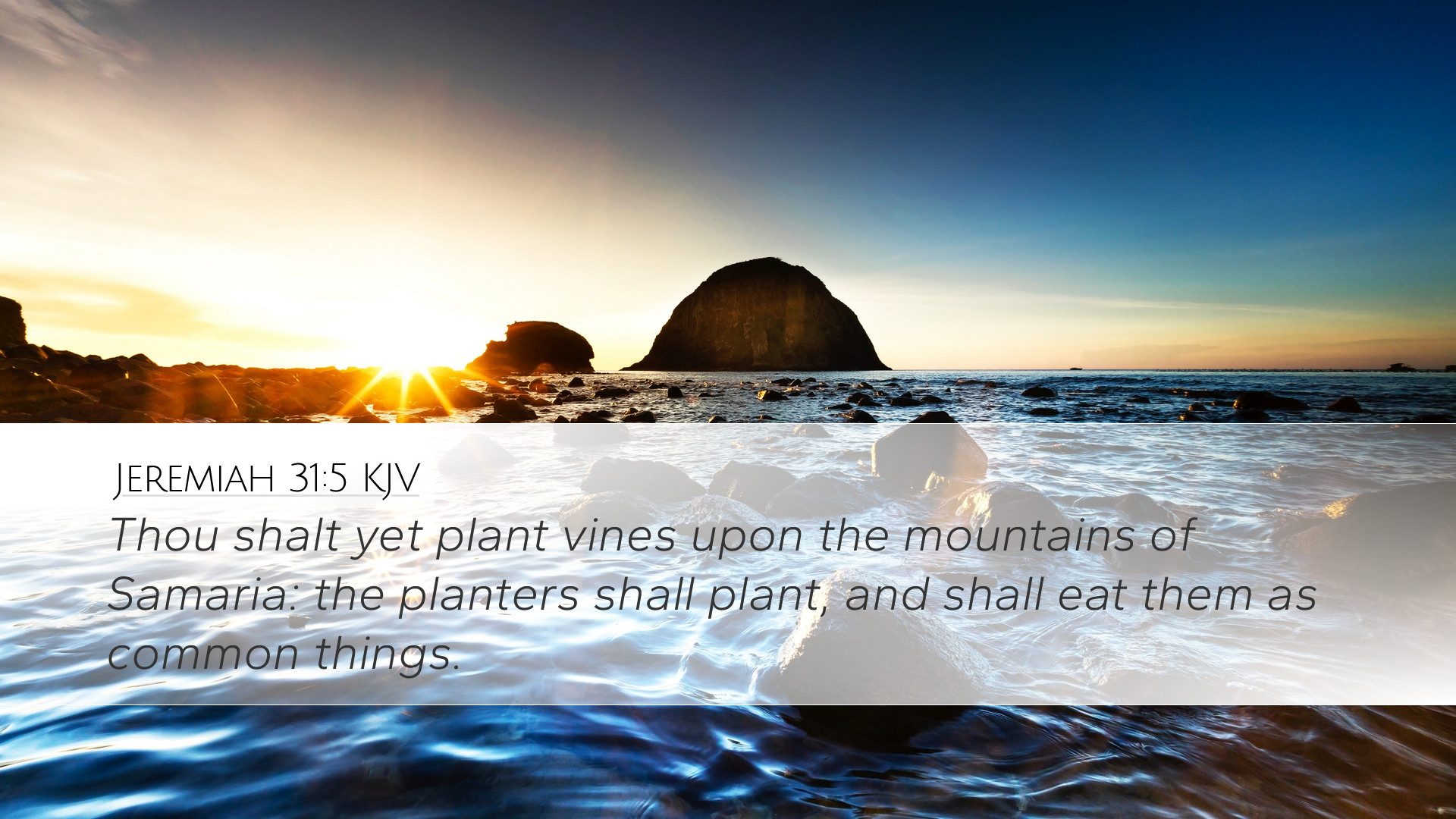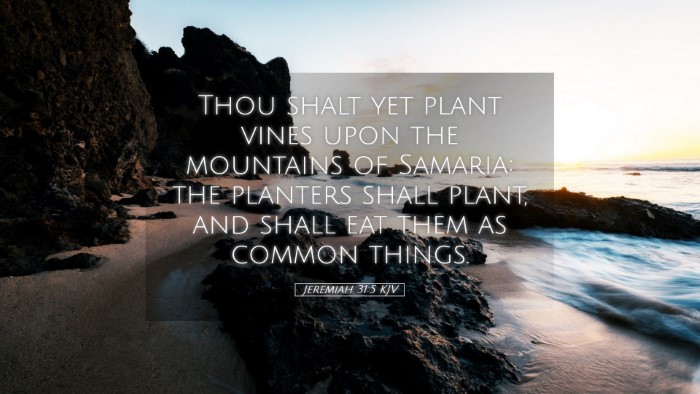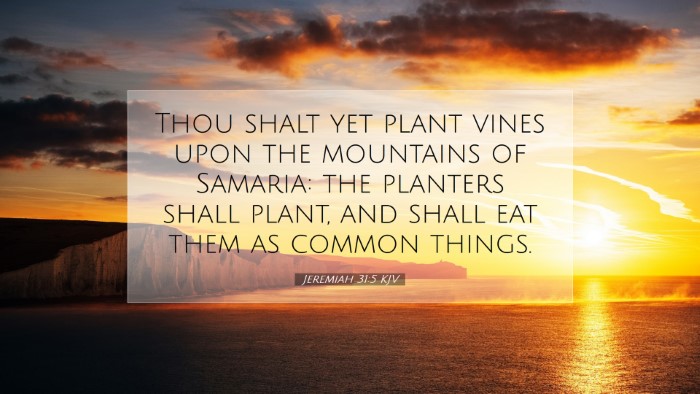Commentary on Jeremiah 31:5
Jeremiah 31:5 states: "Again you shall plant vineyards on the mountains of Samaria; the planters shall plant and shall eat them as ordinary food." This verse encapsulates a promise of restoration and hope amidst the backdrop of judgment and exile. It reflects the themes of renewal and divine favor, which resonate throughout the book of Jeremiah.
Contextual Background
Historically, Jeremiah prophesied during a time of national crisis for Judah, leading up to its Babylonian exile. The words of this prophecy come as a beacon of hope, promising a future where the people of Judah would not only return but thrive in their homeland. Public domain commentaries provide a rich analysis of the significance of land, planting, and divine providence in the lives of the Israelites.
Thematic Insights
1. Restoration of the Promised Land
According to Matthew Henry, the phrase "you shall plant vineyards" symbolizes the restoration of divine blessings. This imagery represents a return to abundance and joy, characterizing the life of the Israelites back in their own land. The mention of "mountains of Samaria" implies a restoration not only of the physical land but also of the spiritual stature of Israel.
2. Assurance of Divine Provision
Albert Barnes emphasizes that the act of planting and eating reflects a long-term commitment from God towards His people. Their labor will not be in vain; they will enjoy the fruits of their labors as ordinary food. This implication of divine provision assures the exiled Israelites that their future will be filled with sustenance and stability.
3. Symbolism of Vines and Vineyards
Adam Clarke provides insight into the cultural significance of vineyards in ancient Israel. Vineyards were symbols of prosperity and joy. They were linked to celebratory occasions and family gatherings. Thus, the prophecy not only conveys agricultural success but also a restoration of communal joy and family life.
Key Interpretive Points
Hope for Future Generations
This verse communicates a deep-seated hope that extends beyond the immediate context of Jeremiah's audience. Matthew Henry interprets it as a promise to future generations who will benefit from the faithfulness of God towards Israel. The return to owning and cultivating the land signifies security and stability for descendants.
Divine Faithfulness vs. Human Inconsistency
Albert Barnes notes the contrast between God’s unwavering commitment and human faltering. While Judah faced judgment for their sins, God's promise of restoration underscores His faithful nature. This relationship highlights the trustworthiness of God, even when circumstances seem dire.
Spiritual Application
This verse encourages believers today to recognize God’s ability to restore and bless, even in trying circumstances. Adam Clarke encourages readers to reflect upon the realities of spiritual desolation and exile, advocating a return to faith, hope, and reliance on God's promises.
Conclusion: The Call for Response
Jeremiah 31:5 is rich with theological implications, guiding pastors, students, theologians, and Bible scholars toward a greater understanding of hope, restoration, and God's providential care. This verse invites a response of faith and obedience, urging all to trust in the agricultural imagery of planting and harvesting as a metaphor for spiritual vitality and communal joy.


